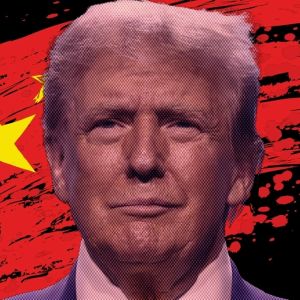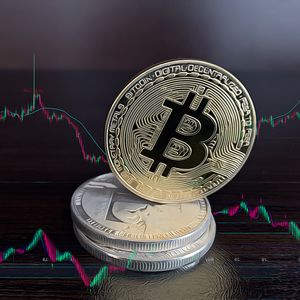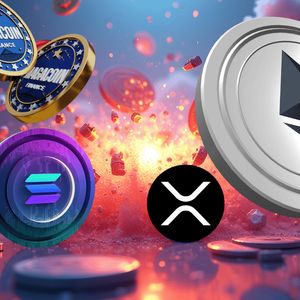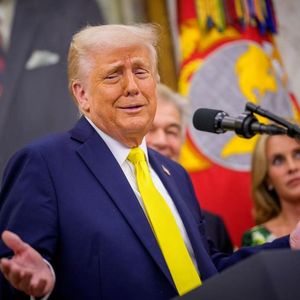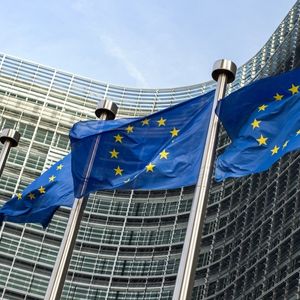The Trump administration has eased its trade stance by exempting smartphones, laptops, and other key consumer electronics from a proposed 125% tariff on Chinese imports. These products are also spared from a separate 10% global tariff, offering major relief to the tech industry and signaling a potential shift in the ongoing US-China trade war. The move represents a major softening of President Trump’s trade policies, which have subjected Beijing to escalating economic pressure. US Customs and Border Protection , the agency that issued the announcement, said the tariff exclusions would take effect retroactively from April 5. The exemption applies to most technology products, including consumer and enterprise-level technology, such as smartphones, laptop computers, memory chips, CPUs, GPUs, hard drives, and solid-state drives. Most of these items are at the heart of consumer markets and cutting-edge computing systems. Most of these devices are produced domestically. Instead, they are pieced together in Asia from key components made in tech powerhouses such as Taiwan, South Korea, China, and Mexico. As a result, the tariffs threatened global supply chains and higher consumer prices in the US — worries registered across the tech world and among analysts. And while the announcement does not resolve the trade dispute, it serves as a clear signal that the administration could be recalibrating its approach — at least concerning The tech industry scores a big win The exemption is a significant victory for the global technology industry, particularly American companies that depend on complicated global supply chains. Apple Inc. is one of the biggest winners. The company’s marquee products, like iPhones, iPads, Apple Watches, and Airtags, are now protected from large tariff increases. One notable exception is AirPods, which are still subject to levies. Apple previously warned that such tariffs would not just hurt profits but also result in price increases for US consumers. After the tariff was first announced in March, Apple’s shares fell as investors worried. Nvidia Corp., whose chips dominate AI and graphics processing, also stands to gain. Most of Nvidia’s chips are made in Taiwan and Mexico and are essential for operating AI data centers and cloud infrastructure. The announcement also includes servers and AI chips, which are core to the growth of both artificial intelligence and cloud computing capabilities in the US. These products had been missing from initial exemption lists, raising alarm from tech industry executives. The exemptions also cover the equipment used to manufacture semiconductors — a key development for ASML Holding NV (Netherlands) and Tokyo Electron Ltd. (Japan). These companies make the specialized tools required to construct advanced chip factories. This action aligns with the wider US aim to increase US semiconductor output under the 2022 CHIPS and Science Act. Intel, TSMC, and Samsung are investing majorly in building or expanding chip facilities in the United States. The tariff standstill will relieve near-term pressures on the companies as they ramp up their US operations — and may even hasten the pace of your innovation and infrastructure. Exemption raises hopes, but uncertainty remains The Trump administration’s latest move is a temporary win, and industry leaders caution that the situation is fluid. Those exceptions are attached to an older presidential order built to prevent the imposition of cumulative tariffs on a single product. That doesn’t mean existing levies have been removed; new tariffs could be imposed in another form. Some analysts forecast that the administration might also renounce the tariffs enframed into more specific duties collecting to critical sectors such as semiconductors and AI components. These are expected to be less severe than the initial 125% but could still impact pricing & production. Crucially, the exemptions do not apply to a different 20% tariff explicitly targeting China over the fentanyl crisis. That tariff and others that predate Trump’s current term are still in effect. Daniel Ives, an analyst at Wedbush Securities, wrote in a research report that was key to the decision. He opened with the comment that there was resistance in the White House to driving exemptions at first, but once the reality of the situation hit home within the Beltway, it was a different story. He also cautioned that China could take future steps that would change the dynamics again, mentioning that these negotiations still featured bald uncertainty and volatility. Some of the exempted products are critical to consumers, national security, and innovation. Exempting those from tariffs signals that the United States could move in a more strategic, selective direction on trade rather than across-the-board levies hitting broad portions of the economy. For now, consumers, manufacturers, and tech giants can relax. Devices will remain affordable, AI infrastructure can continue to grow, and the trade war might find a new phase involving targeted diplomacy instead of broad sanctions. Cryptopolitan Academy: Tired of market swings? Learn how DeFi can help you build steady passive income. Register Now




